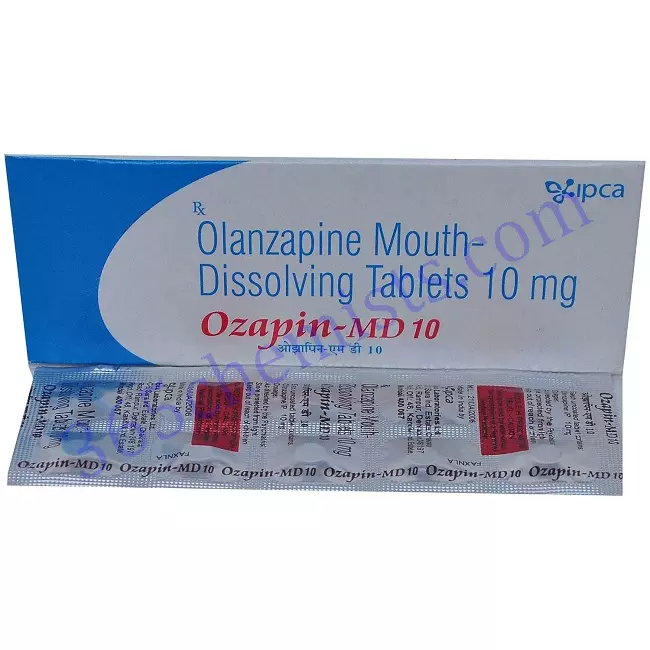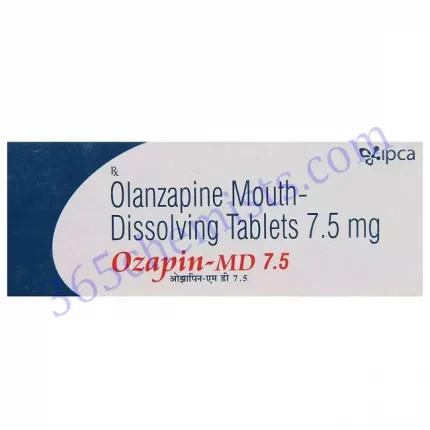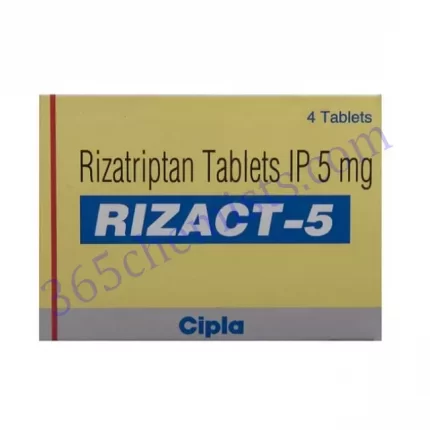Ozapin MD 10mg
Ozapin Md 10 MG Tablet MD is a potent antipsychotic medicine. It affects certain chemicals in the brain and helps in bringing about a change in thought and perception. It is used to treat a variety of psychological and psychiatric disorders such as schizophrenia and bipolar disorder (manic depression).
Substitutes
List of substitutes for Ozapin Md 10 MG Tablet MD
Aculanz 10 MG Tablet MD
Sanofi India Ltd.
Olan Md 10 MG Tablet MD
Micro Labs Ltd.
Olnapra 10 MG Tablet MD
Usv Ltd.
Olpicad 10 MG Tablet MD
Cadila Pharmaceuticals Ltd.
Opticon Md 10 MG Tablet MD
Emcure Pharmaceuticals Ltd.
Side effects
Major & minor side effects for Ozapin Md 10 MG Tablet MD
Orthostatic Hypotension
Weight gain
Headache
Sleepiness
Increase in body fat and cholesterol
Dizziness
Uncontrolled muscle movements
Chest pain
Dry mouth
Running nose and cough
Loss of libido
Change in personality
Uses of Ozapin Md 10 MG Tablet MD
What is it prescribed for?
Schizophrenia
This medicine is used in the treatment of Schizophrenia which is a severe and chronic mental disorder characterized by abnormal social behavior and impaired ability to think clearly.
Bipolar disorder
This medicine is used in the treatment of bipolar disorder which is also known as the manic-depressive illness characterized by unusual mood changes.
Depression
This medicine is used in combination with other medicine for the treatment of depression which is a common and serious medical illness characterized by depressed mood, loss of interest in activities in daily life.
Related Product
Ozapin MD 7.5mg Tablet
Ozapin MD 5mg Tablet
Ozapin MD 10mg Tablet
When not to use?
Allergy
This medicine is not recommended for use if you are known allergic to olanzapine or any other inactive ingredients present in the formulation.
Glaucoma
This medicine is not recommended for use in patients with a known history of glaucoma due to the increased risk of worsening of the patient’s condition.
Warnings
Warnings for special population
Pregnancy
This medicine is not recommended for use in pregnant women unless necessary. The risks and benefits should be discussed with the doctor before taking this medicine.
Breast-feeding
Ozapin MD 10mg medicine is not recommended for use in breastfeeding women unless absolutely necessary. If the medicine is used, close monitoring of the infant for any undesired effects is necessary.
General warnings
Diabetes
This medicine may alter blood glucose levels in diabetic patients. Close monitoring of blood glucose levels is recommended for such patients. Report any unusual symptoms to the doctor immediately. Appropriate dose adjustments or replacement with a suitable alternative may be necessary based on the clinical condition of the patient.
Muscular Disorders
Ozapin MD 10mg medicine may cause muscular disorders in some patients. Any incidence of ticks or uncontrolled muscle movements, fever, dizziness, weakness in muscles, etc. should be reported to the doctor immediately. Replacement with a suitable alternative may be required based on the clinical condition of the patient.
Suicidal thoughts
This medicine should be used with caution due to the increased risk of suicidal thoughts. Close monitoring of the patients for any change in behavior or mood is recommended. Appropriate dose adjustments or replacement with a suitable alternative may be necessary in some cases based on the clinical condition.
Changes in weight
Ozapin MD 10mg medicine is known to cause either weight loss or weight gain. Inform the doctor if you experience any changes in body weight. Close monitoring of body weight is recommended during treatment with this medicine. Appropriate dose adjustments or replacement with a suitable alternative may be necessary in some cases based on the clinical condition.
Orthostatic hypotension
This medicine should be used with caution due to the increased risk of hypotension. Patients are advised to get up slowly from a sitting or a lying position to avoid a sudden drop in the blood pressure. Any symptoms such as fainting, dizziness, lightheadedness, etc. should be reported to the doctor on priority. Close monitoring of blood pressure may be required in some cases. Appropriate dose adjustments may be necessary based on the clinical condition.
Driving or Operating machinery
The use of this medicine may cause drowsiness or dizziness in some patients. It is advised that you do not perform any activities such as driving a vehicle or operating machinery if you experience any of these symptoms during treatment with this medicine.
Dosage
Missed Dose
Take the missed dose as soon as you remember. If it is almost the time for your next dose, skip the missed dose. Do not double your dose to make up for the missed dose.
Overdose
Seek emergency medical treatment or contact the doctor in case of an overdose.
Interactions
All drugs interact differently for person to person. You should check all the possible interactions with your doctor before starting any medicine.
Interaction with Alcohol
Description
N/A
Instructions
Consumption of alcohol is not recommended during treatment with this medicine due to the increased risk of serious side effects such as difficulty concentrating, dizziness, confusion, drowsiness, etc. It is advised that you do not perform any activities that require high mental alertness such as driving a vehicle or operating machinery if you consume alcohol during treatment with this medicine.
Interaction with Medicine
Acarbose
Amlodipine
Cetirizine
Diazepam
Tramadol
Atropine
Disease interactions
Dementia
This medicine is not recommended for use in patients suffering from dementia-related psychosis due to the increased risk of worsening of the patient’s condition as well as death.
Central Nervous System Depression
This medicine is not recommended for use if the patient is in a coma or unconscious state and has severe central nervous system depression. Symptoms like a decreased rate of breathing and decreased heartbeat should be reported immediately.
Neuroleptic Malignant Syndrome (NMS)
This medicine is not recommended for use in patients with a known history of neuroleptic malignant syndrome due to the increased risk of worsening of the patient’s condition. If the medicine is used, any unusual symptoms should be reported to the doctor on priority. Replacement with a suitable alternative should be considered based on the clinical condition.
Tardive Dyskinesia
This medicine is not recommended for use in patients with a known history of tardive dyskinesia since it may worsen the patient’s condition. This risk is especially higher in elderly patients and female patients. Therapy should be discontinued if symptoms such as uncontrolled movements involving the tongue, mouth, lips, jaws, etc. are experienced. Appropriate dose adjustments or replacement with a suitable alternative may be necessary based on the clinical condition of the patient.
Seizure disorders
This medicine should be used with caution in patients with a history of seizure disorders since it may worsen the patient’s condition. Close monitoring of the patient is necessary during treatment with this medicine. Report any unusual symptoms to the doctor immediately. Appropriate dose adjustments or replacement with a suitable alternative may be required in some cases based on the clinical condition.
Diabetes
This medicine should be used with caution in patients with diabetes mellitus due to the increased risk of altered blood glucose levels. Close monitoring of blood sugar levels is recommended for such patients. Replacement with a suitable alternative may be necessary in some cases based on the clinical condition of the patient.
Impaired liver function
This medicine should be used with extreme caution in patients suffering from liver diseases due to the increased risk of serious adverse effects. Close monitoring of liver function tests, appropriate dose adjustments, or replacement with a suitable alternative may be necessary based on the clinical condition of the patient.
Impaired kidney function
This medicine should be used with caution in patients with a history of kidney diseases due to the increased risk of severe adverse effects. Close monitoring of kidney function, appropriate dose adjustments, or replacement with a suitable alternative may be required in some cases based on the clinical condition.
Food interactions
Information not available.
Lab interactions
Information not available.
This is not an exhaustive list of possible drug interactions. You should consult your doctor about all the possible interactions of the drugs you’re taking.
General Instructions
Take this medicine as instructed by the doctor. Do not take in larger or smaller amounts than advised. Consult the doctor if you experience any undesirable side effects. Do not stop the use of this medicine without consulting your doctor since this may cause withdrawal symptoms.













Reviews
There are no reviews yet.